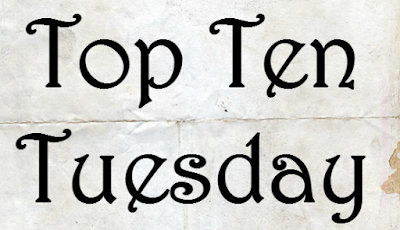The Stepford
Wives – Ira Levin
For Joanna, her
husband, Walter, and their children, the move to beautiful Stepford seems
almost too good to be true. It is. For behind the town's idyllic facade lies a
terrible secret—a secret so shattering
that no one who encounters it will ever be the same.
Review: I cheated. I was a horrible bookworm and saw the movie
years before reading the book. In my defense, it wasn’t totally my fault. I
took this awful film class in college, and the only good memory I have from it
is watching the 1975 Stepford Wives
movie. I absolutely loved the movie and can’t believe that it has taken me this
long to read the novella. Maybe I was so traumatized by the arrogant professor
that I developed a subconscious aversion to all things related to 1970s filmmaking.
Or maybe I’m just crazy. I don’t know.
 |
| 1975 movie poster. |
Anyway, I think
most people are familiar with the basic plot of The Stepford Wives. Joanna, her husband, and their children are the
new family in Stepford. Joanna’s husband quickly makes friends with their male
neighbors, but Joanna just can’t connect with the women, no matter how hard she
tries. All they care about is housework and their husbands. Joanna starts to
suspect that something is wrong in Stepford. The women have no personalities,
and the men are secretive about what happens at their “men only” meetings. She
starts researching the town’s history and discovers something that puts her
life in danger.
“That’s what she
was, Joanna felt suddenly. That’s what they all were, all the Stepford wives:
actresses in commercials, pleased with detergents and floor wax, with
cleansers, shampoos, and deodorants. Pretty actresses, big in the bosom but
small in the talent, playing housewives unconvincingly, too nicey-nice to be
real.” – The Stepford Wives
The Stepford Wives is more than just a horror story. It’s
also a creative social satire and a warning to be careful what you wish for. A
lot of people have already discussed what this book has to say about women. You
can’t have a thorough discussion of feminist literature without bringing up The Stepford Wives, but this story isn’t
just about women. It also satirizes Western society’s male stereotypes.
The men in this
book are selfish and sex-obsessed. They want beautiful, submissive wives who
only care about cooking, cleaning, raising children, and pleasing their
husbands. This fits with Western society’s stereotypes of men, but if you think
about it, it’s ridiculous. Do men really want their daughters growing up to be
mindless sex slaves? Do they really not care at all about their wives
personalities? Would they really trade the woman they fell in love with for
something sexy but brainless? Maybe some would, but most wouldn’t. A lot of
readers focus on the women in this story, but the novella also shows that our
society has some pretty messed-up ideas about men.
I read The Stepford Wives shortly after reading
Ira Levin’s other horror book, Rosemary’s
Baby, which is interesting because it’s easy to tell that both books are
written by the same person. If you like one book, you’ll probably like the
other. They both star women who are manipulated by the men around them. Both
women get caught up in bizarrely dangerous situations that they don’t fully
understand. The reader is led to question both women’s sanity. The books seem
to follow the same outline, but I like The
Stepford Wives better. Joanna is much less naïve than Rosemary. Her personality
never got on my nerves like Rosemary’s did. Joanna knows herself and is
confident about her place in the world.
Both books also
have the same flaws. Like Rosemary’s Baby,
the tension in The Stepford Wives
builds so slowly that I had a hard time staying interested in it at first. The
author includes a lot of mundane details that add realism but aren’t very exciting
to read. Luckily, I knew the ending, and it’s a very short book, so that kept
me going. Also, I was trapped in an airport when I read it. That helped, too.
The book must
have done something right because it’s become an icon in Western culture. I
think it speaks to people’s fears of being transformed into something they’re
not. What makes it scarier is that there really are/were ‘Stepford Wives’ in
the world.
If you’re interested
in feminist literature or classic horror, then I’d recommend adding The Stepford Wives to your reading list.
You should also watch the 1975 movie. I know that the movie is good because
even an evil professor with a serious stick up her bum couldn’t ruin it for me.


































